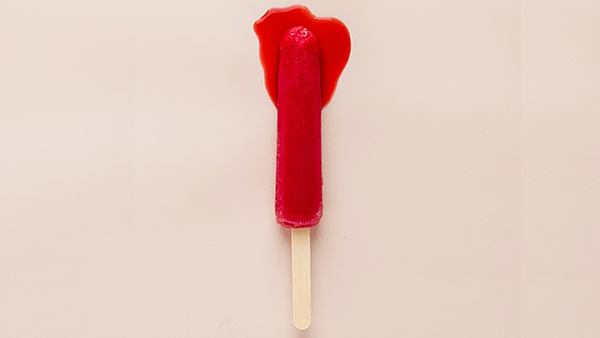How the menstrual cycle works
A woman menstruates approximately 450 times during her life. She also has around 450 menstrual cycles - the period between the first and the last day of her period. If you understand how your menstrual cycle works you can find out when you're about to ovulate. Knowing the optimal moment for conception during the menstrual cycle can help you become pregnant.
Read time: 4 m
Verified by Jenny Jansson
Certified midwife
Menstruation is bleeding from the womb that usually happens once a month. Menstruation usually lasts for three to six days in the first part of the menstrual cycle. The menstrual cycle is usually described as the period between the first and the last day of your period. The menstrual cycle varies from person to person, but if you have a regular cycle it often lasts between twenty-one and thirty-five days with an average of twenty-eight days. Hormones in the body control the length of your menstrual cycle.
It varies from woman to woman how many days there are in between periods and how heavy the flow is. There are about one hundred millilitres of blood in a menstrual period but the blood is mixed with cell membranes from the womb so it feels more substantial.
How the menstrual cycle works
After a period, hormone production in the pituitary gland increases. These hormones affect the ovaries and cause an egg to start ripening in a sac. The hormone oestrogen is produced in the egg sac. When the egg sac ruptures, the egg loosens and the egg sac is transformed into a corpus luteum. The corpus luteum produces corpus luteum hormone, or progesterone, an important hormone that causes the lining of the uterus to prepare to receive a fertilised egg.
If the egg hasn't been fertilised and doesn't attach to the lining of the womb, progesterone is no longer needed. The amount of progesterone decreases. This makes the lining of the womb shrink and is released as a menstrual period. This happens around two weeks after ovulation and causes the menstrual cycle to restart. As long as you have a period every month you can become pregnant.
Ovulation during your menstrual cycle
Ovulation occurs around two weeks before your next period, or around ten days after the first day of your period. When ovulation occurs a mature egg is released from your ovaries and travels down your Fallopian tubes. This is when the egg can be fertilised by a sperm and this is when you can get pregnant. The oestrogen levels determine whether the egg is released or not. If the levels are too low no egg will be released.
Some women experience discomfort or pain in their lower abdomen when ovulating and some do not feel anything. Sometimes there is a small amount of transparent, thicker discharge and sometimes there is also a small amount of blood, which is not menstrual blood.
Irregular menstruation
Regular menstruation means menstruation once every four weeks. Irregular menstruation is the opposite of this. A normal menstrual cycle almost always varies. When the menstrual cycle is longer than thirty-five days it's classed as an irregular menstrual cycle. The length of your menstrual cycle can vary by a few days without being classed as irregular.
You can keep track of your menstrual cycle by keeping a diary and noting down the days when you get your period. You can also keep track of your menstrual cycle using an app. If you have an irregular menstrual cycle it can sometimes be hard to get pregnant because you might not be able to work out when you ovulate. A way to increase your chances of getting pregnant is to have sex every other day from the end of your period for just over a week.
An irregular menstrual cycle often isn't a problem. It is sometimes caused by stress, contraception, weight fluctuations, breastfeeding or the beginning of menopause.
PMS and other problems
Lots of women find that their moods are affected negatively two weeks before their periods and experience tender breasts and bloating. This can be caused by PMS.
Period pains and heavy bleeding can also cause discomfort. These symptoms can vary from period to period. Some women experience that their period pain is so severe that their quality of life is affected and may be suffering from endometriosis. Make an appointment with your GP to get help. You can get referred to a gynaecologist who will examine your womb and ovaries with an ultrasound scan.
If your periods stop because of stress you probably don't need treatment. Your periods will usually start again when stress is reduced.
Verified by Jenny Jansson
Certified midwife
More from Preggers
Hundreds of related articles, podcasts & more waiting for you in the Preggers app.
Download Preggers today.

